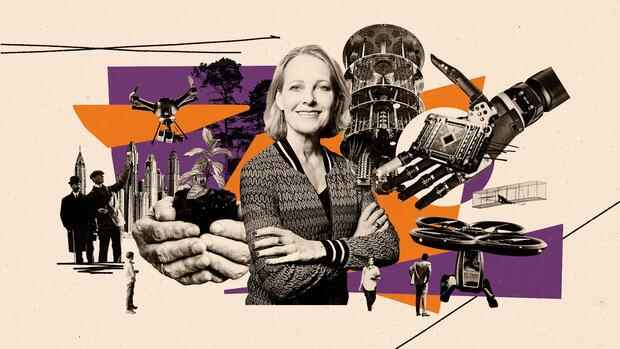Humanity has an unconscious but existential capacity for self-mockery. How else could it be explained that for centuries we have lived with an economic system that plays off the contradictory aspirations of homo oeconomicus, homo libertatis and homo otiosus against each other?
I correct: The economic system does nothing, we are the system. We ourselves play off our need for economic benefit, individual freedom and laziness against each other. But one by one.
For decades, various wings of economics have been arguing about how people and their economic motives are doing. In a nutshell, some argue that every human being acts as a rational agent in the world and makes the right decisions as a utility maximizer. In an economy that is always trimmed for growth, this also means that a larger selection creates better conditions for the rational utility maximizers: They can compare and have the choice – more is more.
This image of man has not only been criticized by many economists and philosophers. A number of studies have also shown that the human ability to make rational decisions often reaches as far as a pig jumps. One of the most famous is the 2000 jam experiment by Sheena Iyengar and Mark Lepper.
Top jobs of the day
Find the best jobs now and
be notified by email.
In a supermarket in California, customers were offered different jams to try – once 24 pieces and once six. The homo oeconomicus has a clear prognosis for this experiment: The more jams to choose from, the greater the willingness of customers to compare and buy.
Less is more
But this equation did not even work for the simple breakfast spread. If customers found six jams, 40 percent tried at least one variety and 30 percent bought a jar.
Although 60 percent tried 24 jams, only three percent wanted to buy one. Apparently our rational decision-making will is overwhelmed in the multi-option society. We lose track, don’t make decisions at all, or are permanently dissatisfied with the decision we have made.
In other words: less is more.
This is an exciting turn in the economic image of man, which the American author Dave Eggers uses for a perfidious plot in his current novel “The Every”. In the book that follows the world bestseller The Circle, Eggers continues the future history of Silicon Valley. The company from “The Circle” has bought out the competition and now acts as an all-supplier in an algocracy, a world completely controlled and monitored by technology.
Roman “The Every”: Limitless choice means the end of the world
Towards the end of the novel, Eggers designs a strategic turn for “The Every”, which at first glance seems paradoxical. It contains a total departure from Silicon Valley’s limitless growth idea and follows the logic of the jam experiment: the reduction of all offer categories to a minimum, controlled by “The Every”.
The group already knows all the preferences of all consumers (and thus almost all people, because hardly anyone can escape the access of “The Every”). Couldn’t he be the interface between all offers and all demands on the world market?
On the basis of all available data, the group decides which products in which categories are most used and best rated, and only those are still manufactured at all – so to speak, an AI-supported selection of the top sellers, with which everyone then has to live. In this way, everything could ultimately be made simpler, clearer and more sustainable. Because “limitless choice means the end of the world”, according to the new motto.
It is good for people if the agony of choice is reduced
It is part of the plot of the novel – spoiler alert! – that this idea actually came from a subversive employee who wanted to bring the group down with it. But then it suddenly turns into a promising future strategy that will play even more power into the hands of “The Every”.
>> Read here: Why a consortium led by Bosch, SAP and Eon wants to build a supercomputer for artificial intelligence
Empirically proven, it is good for people’s decisions if the agony of choice is reduced. However, if individual corporations, institutions or governments know better what people want than these people themselves, we should become suspicious. It testifies less to economic optimization or democratic benevolence than to totalitarian fantasies of omnipotence.
Incidentally, we know this idea from history as an economic variant of “actually existing socialism”. It’s called a planned economy and it failed miserably.
In this column, Miriam Meckel writes fortnightly about ideas, innovations and interpretations that make progress and a better life possible. Because what the caterpillar calls the end of the world, the rest of the world calls a butterfly. ada-magazin.com
More: Woke Capitalism – Kulturkampf reaches the economic system
